
Serenity in the Highlands: Discover Bururi
Nestled in the southern highlands of Burundi, Bururi is a hidden gem that offers a serene escape from the hustle and bustle of city life. Renowned for its cool climate and lush greenery, Bururi is a haven for nature lovers and those seeking tranquility. The town is surrounded by vast tea plantations and dense forests, providing picturesque landscapes that are perfect for hiking and photography. One of the key attractions in Bururi is the Bururi Forest Nature Reserve. This protected area is home to a rich biodiversity, including rare bird species, primates, and unique plant life. Guided tours of the reserve offer a chance to explore its pristine trails and experience the natural beauty up close. The reserve is a paradise for bird watchers, with over 100 bird species recorded in the area. In addition to its natural wonders, Bururi also offers cultural experiences. The local markets are vibrant with fresh produce, handmade crafts, and traditional Burundian fabrics. Engaging with the local community provides a deeper understanding of Burundian culture and hospitality. Don't miss out on trying local delicacies at small eateries that serve authentic Burundian cuisine, rich in flavors and traditions. For those interested in history, Bururi has several colonial-era buildings that offer a glimpse into the past. The town's peaceful ambiance and friendly locals make it an ideal destination for a relaxing getaway. Whether you're exploring the natural reserves, enjoying the local culture, or simply soaking in the serene surroundings, Bururi promises a memorable experience for every traveler.
Local tips in Bururi
- Visit the Bururi Forest Nature Reserve early in the morning for the best chance to see wildlife.
- Bring comfortable hiking shoes for exploring the natural trails around Bururi.
- Try local dishes like 'Boko Boko Harees' and 'Ibiharage' at small, family-run eateries for an authentic taste of Burundian cuisine.
- Engage with local artisans at the markets to purchase unique handmade crafts and traditional fabrics.
- Carry a light jacket as the highland climate can be cooler, especially in the evenings.
- Learn a few phrases in Kirundi, the local language, to enhance your interactions with the friendly residents.
Serenity in the Highlands: Discover Bururi
Nestled in the southern highlands of Burundi, Bururi is a hidden gem that offers a serene escape from the hustle and bustle of city life. Renowned for its cool climate and lush greenery, Bururi is a haven for nature lovers and those seeking tranquility. The town is surrounded by vast tea plantations and dense forests, providing picturesque landscapes that are perfect for hiking and photography. One of the key attractions in Bururi is the Bururi Forest Nature Reserve. This protected area is home to a rich biodiversity, including rare bird species, primates, and unique plant life. Guided tours of the reserve offer a chance to explore its pristine trails and experience the natural beauty up close. The reserve is a paradise for bird watchers, with over 100 bird species recorded in the area. In addition to its natural wonders, Bururi also offers cultural experiences. The local markets are vibrant with fresh produce, handmade crafts, and traditional Burundian fabrics. Engaging with the local community provides a deeper understanding of Burundian culture and hospitality. Don't miss out on trying local delicacies at small eateries that serve authentic Burundian cuisine, rich in flavors and traditions. For those interested in history, Bururi has several colonial-era buildings that offer a glimpse into the past. The town's peaceful ambiance and friendly locals make it an ideal destination for a relaxing getaway. Whether you're exploring the natural reserves, enjoying the local culture, or simply soaking in the serene surroundings, Bururi promises a memorable experience for every traveler.
When is the best time to go to Bururi?
Iconic landmarks you can’t miss
Bujumbura Zoo
Explore the rich biodiversity and enchanting wildlife at Bujumbura Zoo, a must-visit destination for nature lovers in Burundi.
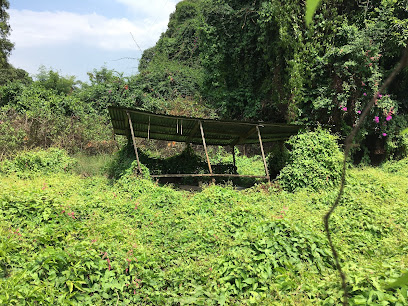
Marché central de Bujumbura Siyoni
Discover the lively atmosphere and rich cultural heritage at Marché Central de Bujumbura Siyoni, a must-visit market in Burundi's vibrant capital.
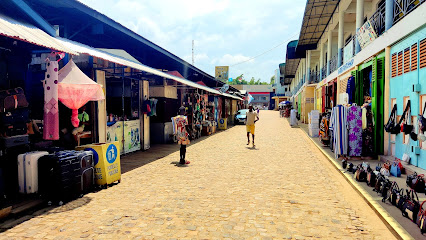
Chutes de la Karera Falls
Experience the breathtaking beauty of Chutes de la Karera Falls, a natural wonder in Burundi that captivates with its stunning cascades and serene surroundings.
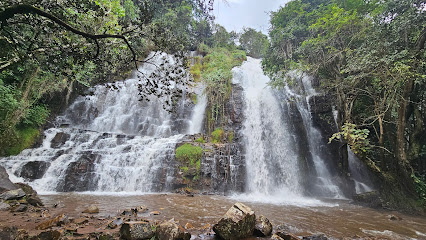
Livingston-Stanley Monument
Discover the rich history of exploration at the Livingstone-Stanley Monument in Ramba, Burundi, a serene tribute surrounded by nature's beauty.
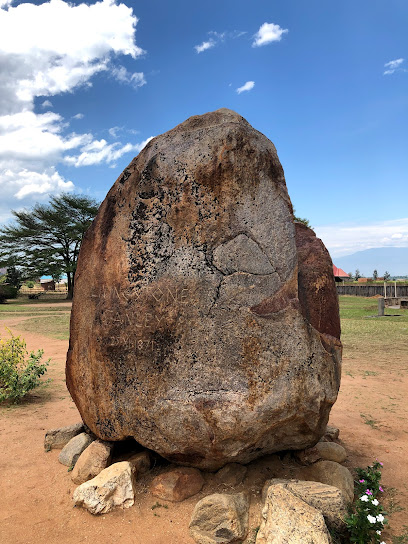
Gishora Drum Sanctuary
Discover the vibrant rhythms and rich cultural heritage at the Gishora Drum Sanctuary, a UNESCO World Heritage site in Burundi.
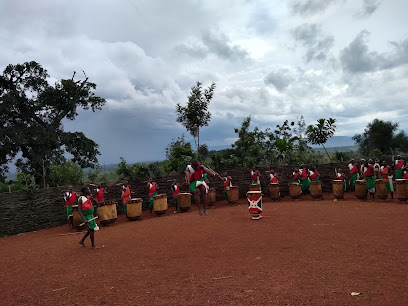
Kibira National Park
Explore the lush rainforests and rich biodiversity of Kibira National Park, a hidden gem in Burundi perfect for eco-tourism and adventure.
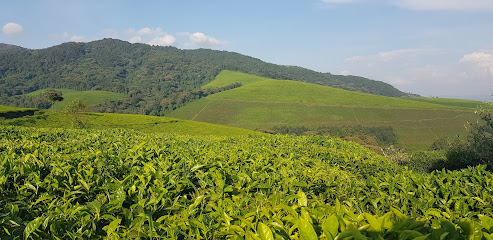
Rusizi National Park
Explore the stunning landscapes and rich wildlife of Rusizi National Park, a true natural gem in Burundi perfect for adventure and tranquility.
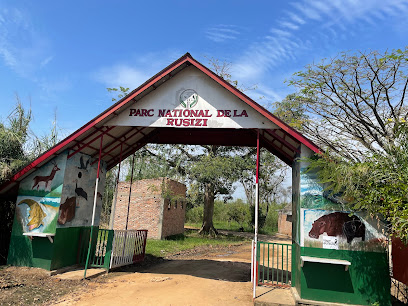
Bururi Forest Nature Reserve
Explore the Bururi Forest Nature Reserve, a breathtaking sanctuary in Burundi, perfect for nature lovers and adventure seekers alike.
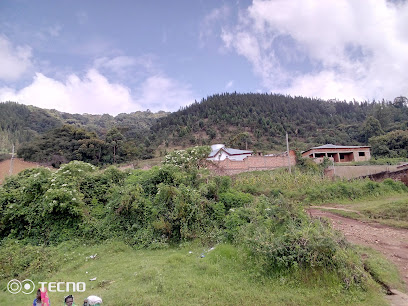
Regina Mundi Cathedral
Discover the architectural beauty and spiritual significance of Regina Mundi Cathedral, a must-visit landmark in Bujumbura, Burundi.
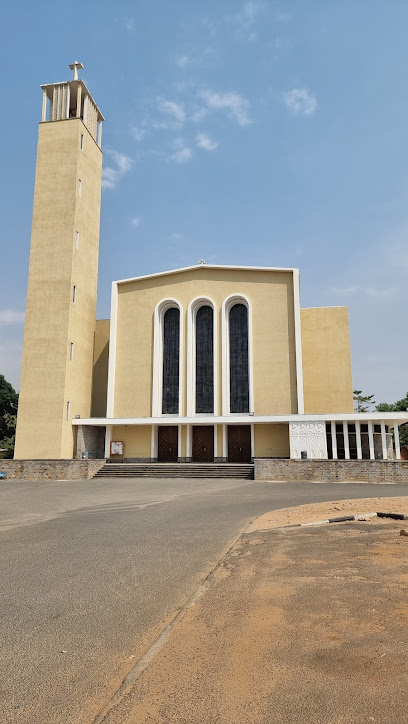
Burundi Discovery Tours
Discover the beauty and culture of Burundi with tailored experiences at Burundi Discovery Tours in Bujumbura.
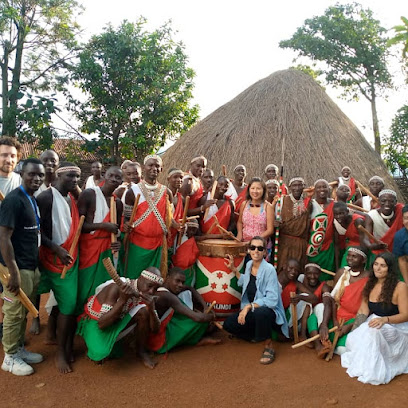
Burundi Safari And Tours
Experience the natural beauty and rich culture of Burundi through personalized tours with Burundi Safari And Tours, your gateway to adventure.
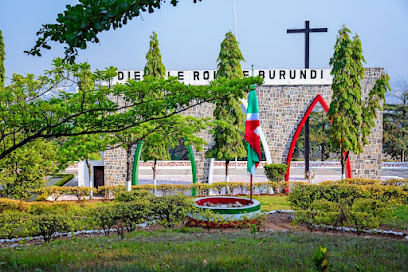
Mosquée de Bururi
Experience the tranquility and architectural splendor of Mosquée de Bururi, a cultural gem in the heart of Burundi, reflecting the nation's rich Islamic heritage.
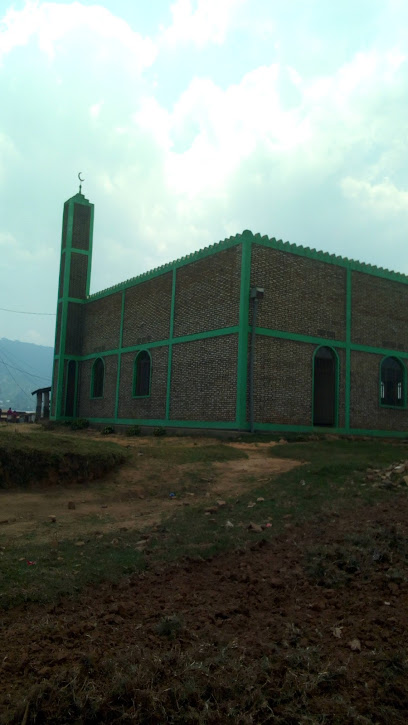
Visit Burundi
Explore Burundi's rich culture and breathtaking landscapes with Visit Burundi, your gateway to an unforgettable East African adventure.

Unmissable attractions to see
MAWIMBI Beach club
Experience sun-soaked relaxation and thrilling aquatic adventures at MAWIMBI Beach Club in Kizuka, a must-visit destination for all tourists.
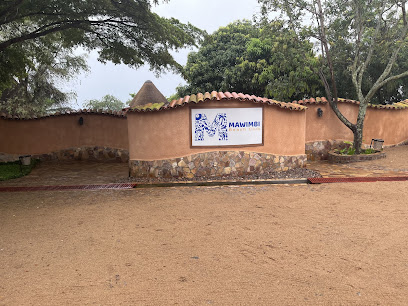
Bururi Forest Nature Reserve
Explore the lush landscapes and rich wildlife of Bururi Forest Nature Reserve, a serene escape into nature's wonders in Burundi.
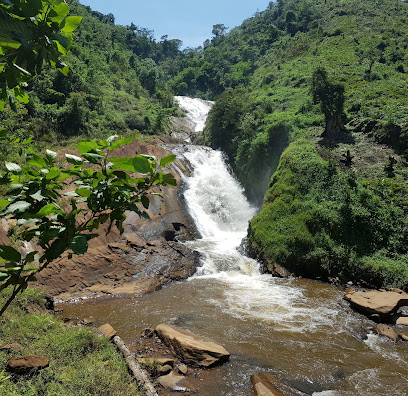
Gakora Stone Beach
Experience the natural beauty and tranquility of Gakora Stone Beach in Burundi, a perfect retreat for relaxation and cultural exploration.
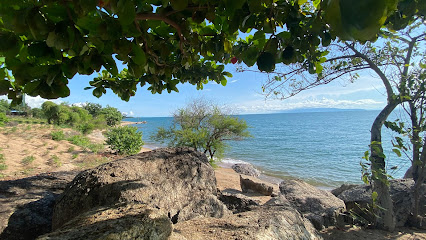
Monument du Prince Louis RWAGASORE
A national landmark in Gitega honoring Prince Louis Rwagasore, a hero of Burundi's independence, offering insights into the nation's history and culture.

Murinda
Explore the enchanting Murinda in Mazuru, Burundi – a stunning tourist attraction filled with natural beauty and rich cultural experiences.

RIVER NTAHANGWA
Discover the serene beauty of River Ntahangwa in Bujumbura, a perfect blend of nature and local culture, ideal for relaxation and exploration.
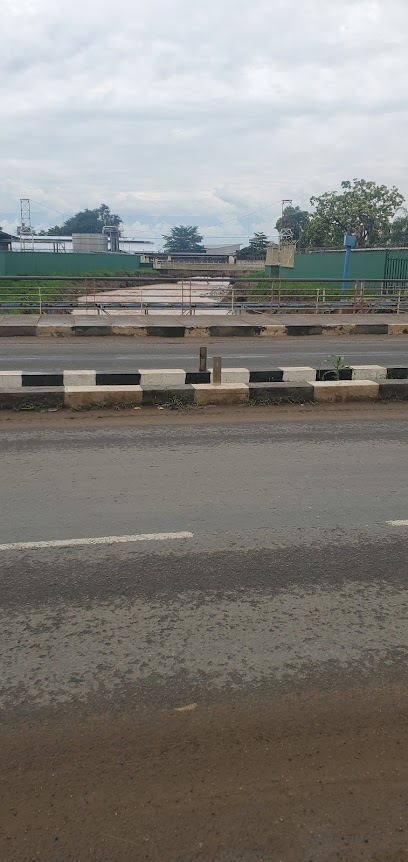
Kurya Gitara
Explore Kurya Gitara, a stunning tourist attraction in Biniganyi, Burundi, where natural beauty meets rich cultural heritage.

Grand tambourinaire de Higiro
Immerse yourself in the vibrant cultural heritage of Burundi at the Grand Tambourinaire de Higiro, the heart of traditional drumming and dance.

riserva specie naturale di yessini
Discover Burundi's natural beauty at Riserva Specie Naturale di Yessini, a haven for wildlife and nature lovers in Mutumbara.
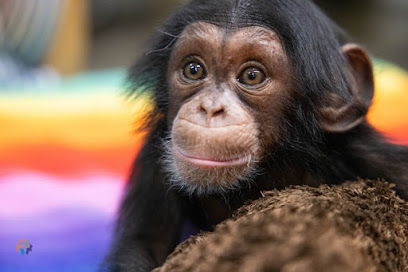
Kigwena Forest Nature Reserve
Discover Burundi's natural beauty in Kigwena Forest: a haven for wildlife, birdwatching, and tranquil nature walks along Lake Tanganyika.

Eaux thermales de Muyange
Experience tranquility at Muyange's thermal springs. Relax in warm, mineral-rich waters surrounded by Burundi's beautiful landscapes.

Burundi Guides
Discover Bujumbura: Burundi's vibrant heart, offering culture, history, and lakeside beauty on the shores of Lake Tanganyika.
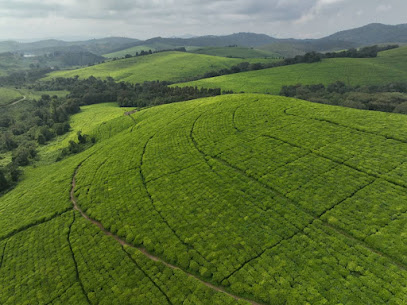
Essential places to dine
Zanzi
Discover the taste of Burundi at Zanzi – where local flavors meet international cuisine in an inviting atmosphere.
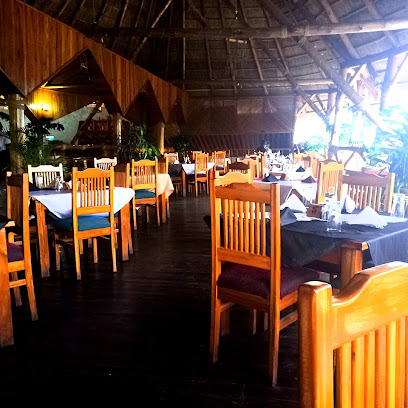
Harrys Grill House
Experience the vibrant flavors of Bujumbura at Harry's Grill House - where grilling meets tradition in every bite.
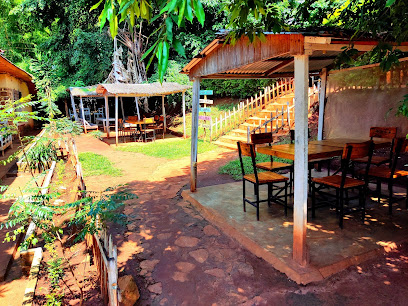
Belvedere Restaurant
Experience exquisite dining with breathtaking views at Belvedere Restaurant in Bujumbura - a culinary treasure offering local and international flavors.
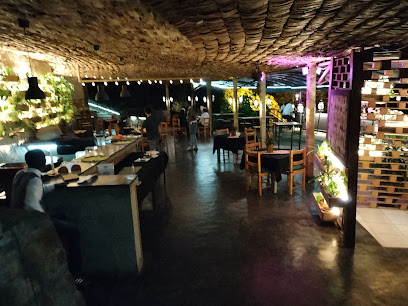
Restaurant Chez Orphée
Experience the culinary delights of Burundi at Restaurant Chez Orphée, where local flavors meet international cuisine in a cozy atmosphere.
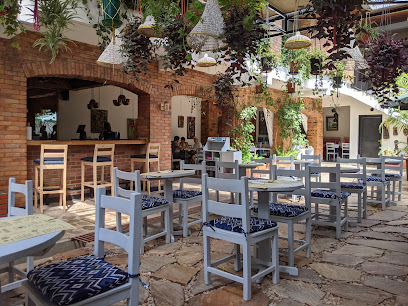
Paparazzi Restaurant
Experience family-friendly dining at Paparazzi Restaurant in Bujumbura, offering stunning lake views and delicious local cuisine.
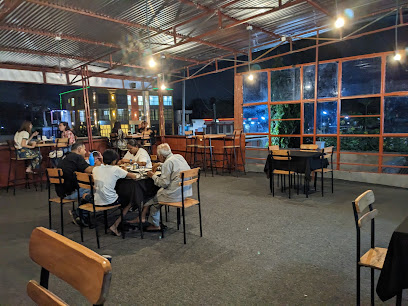
Restaurant Bar Meteo
Experience the vibrant flavors and lively atmosphere at Restaurant Bar Meteo, your go-to dining spot in Bujumbura.
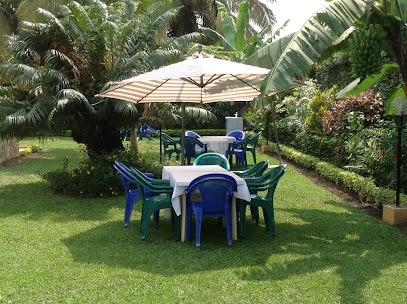
Restaurant Tanganyika
Experience authentic Burundian cuisine with stunning views at Restaurant Tanganyika by Lake Tanganyika in Bujumbura.
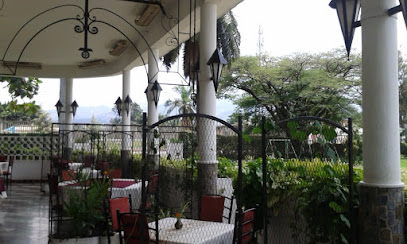
Asian Restaurant
Experience the rich flavors of Asia at Bujumbura's premier Asian restaurant featuring Indian, Pakistani & Pan-Asian cuisines.
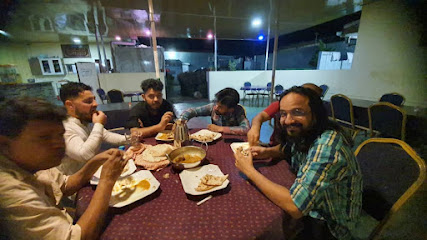
Atrium Restaurant
Experience fine dining with breathtaking views at Atrium Restaurant in Bujumbura, where culinary excellence meets serene lakeside ambiance.
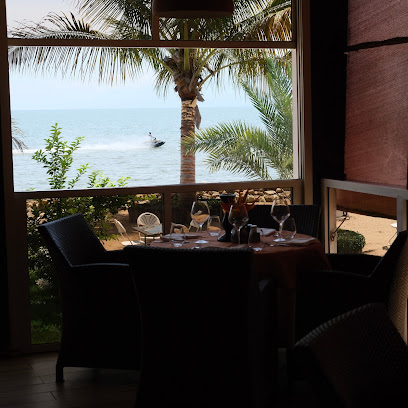
Tandoor
Experience authentic Indian cuisine at Tandoor in Bujumbura, where every dish is a celebration of rich flavors and spices.
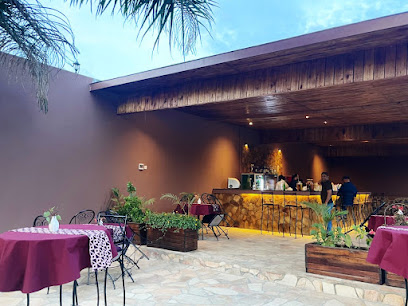
Sitar II Restaurant
Experience authentic Burundian flavors and international cuisine at Sitar II Restaurant in Bujumbura's vibrant dining scene.
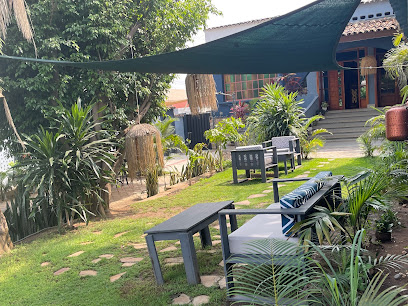
La Pirogue
Discover La Pirogue: A Culinary Haven Offering Local Delights and Scenic Views in Bujumbura.
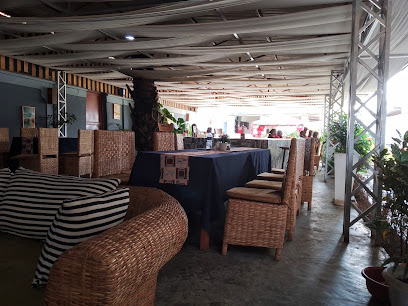
Majestic Restaurant
Experience authentic Burundian cuisine at Majestic Restaurant in Rumonge - where flavor meets hospitality.
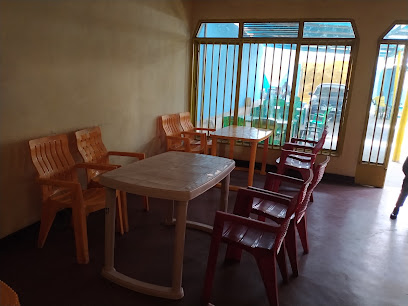
Baobab
Discover authentic Burundian cuisine at Baobab in Bujumbura - where every dish is a celebration of local flavors and traditions.
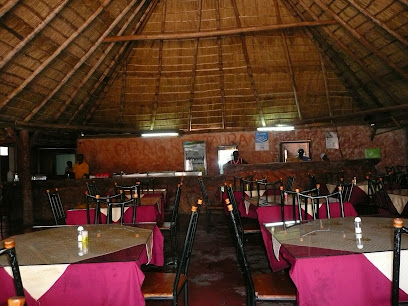
La Coupe Restaurant
Experience authentic Burundian flavors and warm hospitality at La Coupe Restaurant in Bujumbura.
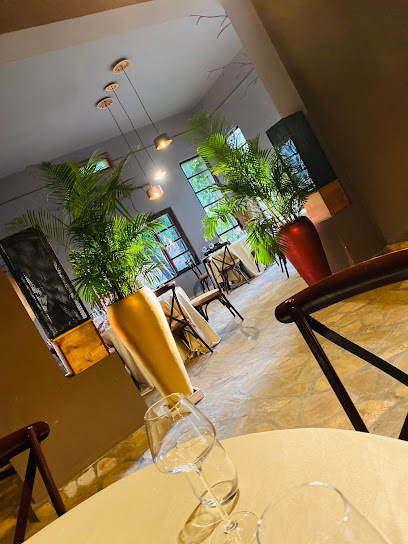
Markets, malls and hidden boutiques
Fidodido Wine Corner
Explore Fidodido Wine Corner in Bujumbura for a delightful selection of fine wines and an unforgettable tasting experience.
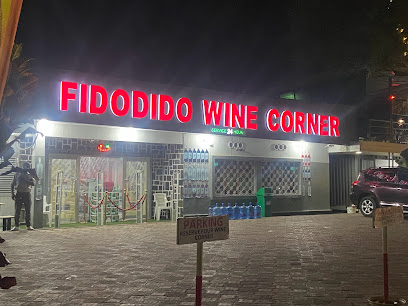
Marché de RUMONGE
Discover the heart of Burundian culture at Marché de Rumonge, where shopping meets tradition and flavor.
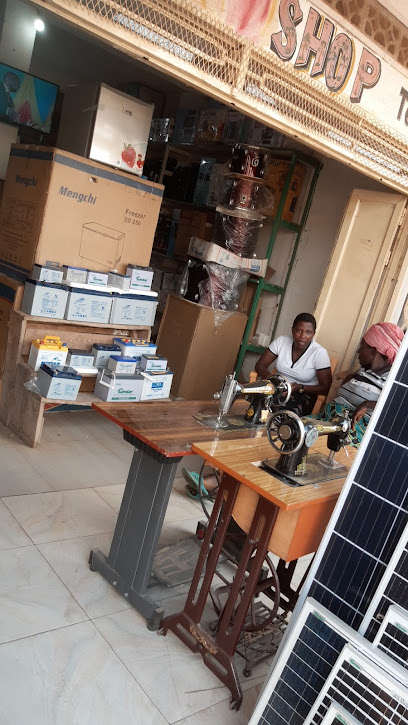
Murambi Coffee
Discover the rich flavors of Burundi at Murambi Coffee, a cozy shopping mall in Nkonyovu known for its delightful brews and local crafts.

Kiyera Burundi
Discover unique handcrafted treasures at Kiyera Burundi, a boutique showcasing the rich artistry and culture of Bujumbura.

Burundi Garden Center
Discover the vibrant flora and tranquil atmosphere at Burundi Garden Center, a must-visit oasis in Bujumbura for gardening enthusiasts and nature lovers.

Marché central de Bururi
Experience the local charm of Marché Central de Bururi, a bustling market filled with fresh produce, authentic cuisine, and vibrant Burundian culture.

Shop COLUCAAB - CHASAA Burundi
Discover authentic Burundian home goods and unique crafts at Shop COLUCAAB - CHASAA in Bujumbura, a treasure trove for culture enthusiasts.

Kwa Desire
Explore Kwa Desire, Kinyinya's charming gift shop, for unique Burundian crafts and souvenirs that capture the essence of local culture.

La Gracias Boutique Alimentaire
Explore local flavors and artisanal delights at La Gracias Boutique Alimentaire in Mutanga, the perfect stop for unique souvenirs and culinary treasures.

Nice Shop
Explore the essence of Burundi at Nice Shop, where local craftsmanship meets a delightful shopping experience in the heart of Bujumbura.
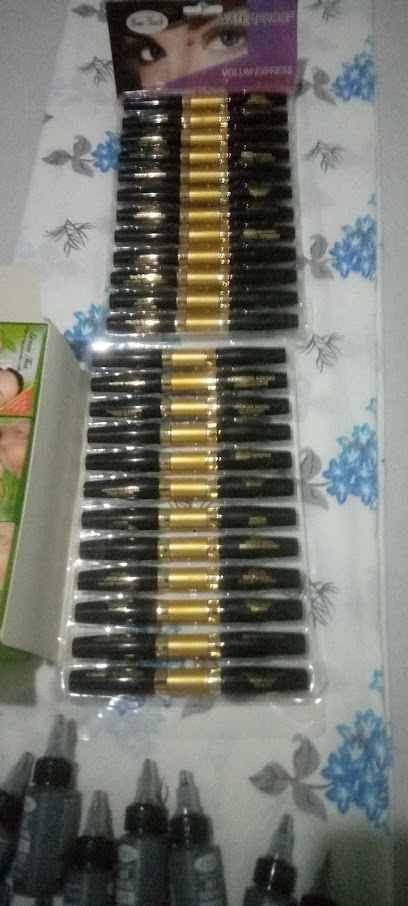
Rukaramu
Discover the essence of Rukaramu through its unique gift shop, showcasing local craftsmanship and cultural treasures for every traveler.
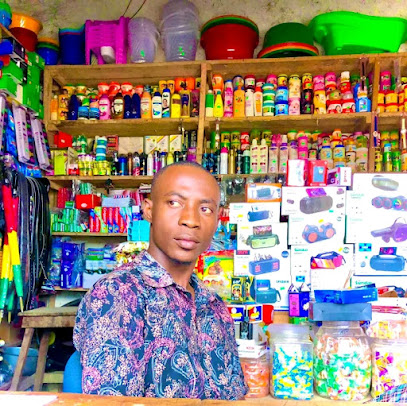
Burundi Makamba ,kayogoro , marché
Experience the Heart of Kayogoro: A Vibrant Market Filled with Local Flavors, Culture, and Community Spirit in Burundi.

Centre MURAMVYAI
Explore Centre MURAMVYAI in Murambi, Burundi - a vibrant shopping mall blending local culture with modern retail experiences.

Boom
Explore unique souvenirs and local crafts at Boom, the premier gift shop in Bujumbura, celebrating Burundi's vibrant culture.

Niba
Discover unique vintage clothing and accessories at Niba, a charming store in Makamba that brings the past to life with its eclectic selection.
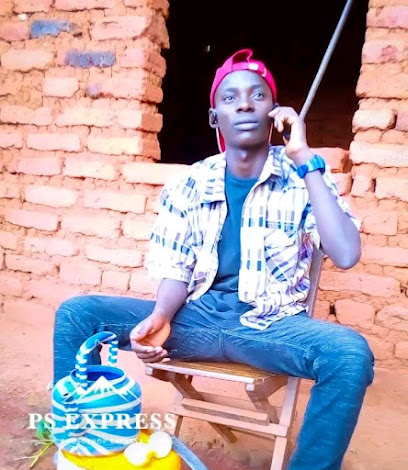
Essential bars & hidden hideouts
Bar Le Royal
Experience Kabezi's culinary delights at Bar Le Royal, where grilled specialties meet a vibrant atmosphere for an unforgettable dining experience.
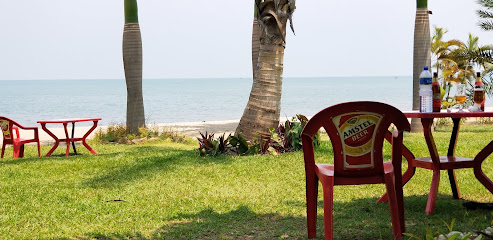
Kiriri Bar (KB)
Discover Kiriri Bar, a vibrant oasis in Bujumbura offering a unique blend of local drinks, a lively atmosphere, and friendly service for an unforgettable experience.
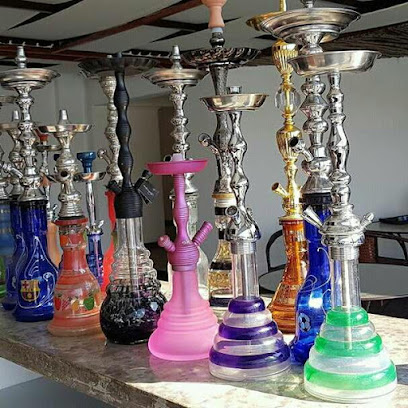
Zanzi Bar
Discover Zanzi Bar in Bujumbura: a vibrant bar offering local drinks, great atmosphere, and unforgettable nightlife experiences.
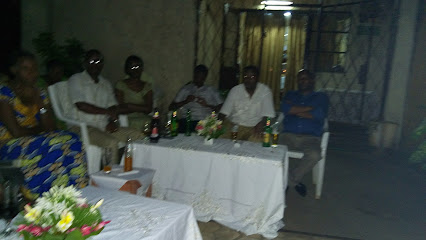
Bar Kwihuriro
Experience the vibrant nightlife of Bujumbura at Bar Kwihuriro, where local culture and socializing come together in a lively atmosphere.

Bar chez butunu
Discover the heart of Bujumbura's nightlife at Bar chez Butunu, where locals and travelers unite over drinks and vibrant music.

BEST GARDEN RESTO-BAR
Experience the Best Garden Resto-Bar in Bujumbura: where lush gardens meet delightful drinks and a vibrant local atmosphere.

Chez Willy The Bartender (Ex-Kasuku)
Experience the vibrant atmosphere and delicious grilled dishes at Chez Willy The Bartender, a culinary gem in Bujumbura.
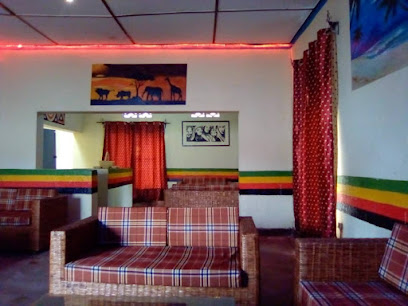
RURINGANIZO
Discover the vibrant local culture and unwind at RURINGANIZO, a charming bar in Bujumbura, where friendly faces and refreshing drinks await you.

Candelaria Bar
Discover the vibrant spirit of Bujumbura at Candelaria Bar, where local culture meets a lively atmosphere and refreshing drinks.

Kw'isoko BAR
Discover the vibrant nightlife at Kw'isoko BAR in Bujumbura, where local culture meets a lively atmosphere and delicious drinks await.
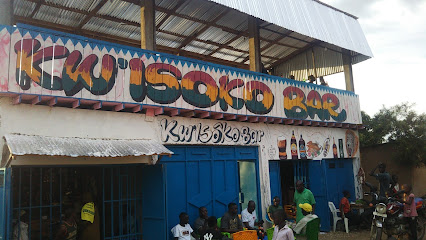
MOG BURURI
Discover MOG BURURI, a charming bar in Bururi that offers a taste of local culture and a welcoming ambiance for travelers.

KWIRIGA BAR
Discover the vibrant atmosphere and local flavors at KWIRIGA BAR, a must-visit destination in Ruhinga for tourists seeking authentic experiences.

Bar gitagari city
Dive into the vibrant nightlife at Bar Gitagari City, where local drinks and live music create an unforgettable experience in Rumonyi.

TAMI IN BAR Bujumbura, Burundi
Experience the vibrant nightlife of Bujumbura at TAMI IN BAR, where local culture meets international flair in a lively atmosphere.

Local Phrases
-
- HelloAmahoro
[ah-mah-ho-ro] - GoodbyeKwaheri
[kwa-he-ri] - YesEgo
[eh-go] - NoOya
[oh-ya] - Please/You're welcomeNtivyandike
[n-ti-vyan-di-ke] - Thank youMurakoze
[mu-ra-ko-ze] - Excuse me/SorryNturi mwiza
[n-tu-ri mwi-za] - How are you?Amakuru?
[a-ma-ku-ru] - Fine. And you?Nyamukiza. Wewe?
[nya-mu-ki-za. we-we] - Do you speak English?Mwakorana ikinyarwanda?
[mwa-ko-ra-na i-ki-nyar-wan-da] - I don't understandNtazi
[n-ta-zi]
- HelloAmahoro
-
- I'd like to see the menu, pleaseNifise iyo menu, kandi
[ni-fi-se i-yo me-nu, kan-di] - I don't eat meatSindwiye kuryama
[sin-dwi-ye ku-rya-ma] - Cheers!Mwaramutse!
[mwa-ra-mu-tse] - I would like to pay, pleaseNifise kwihesha, kandi
[ni-fi-se kwi-he-sha, kan-di]
- I'd like to see the menu, pleaseNifise iyo menu, kandi
-
- Help!Ubutwari!
[u-bu-twa-ri] - Go away!Jya kure!
[jya ku-re] - Call the Police!Sibyuma Polisi!
[si-byu-ma Po-li-si] - Call a doctor!Sibyuma dokotore!
[si-byu-ma do-ko-to-re] - I'm lostNdi muyaga
[n-di mu-ya-ga] - I'm illNdi mwiza
[n-di mwi-za]
- Help!Ubutwari!
-
- I'd like to buy...Nifise kugura...
[ni-fi-se ku-gu-ra...] - I'm just lookingNifuza kureba gusa
[ni-fu-za ku-re-ba gu-sa] - How much is it?Ni iki gihe?
[ni i-ki gi-he?] - That's too expensiveIyo ndayagira
[i-yo n-da-ya-gi-ra] - Can you lower the price?Mwemereze indege
[mwe-me-re-ze in-de-ge]
- I'd like to buy...Nifise kugura...
-
- What time is it?Ni gihe ki?
[ni gi-he ki?] - It's one o'clockNi saa rimwe
[ni sa-a rim-we] - Half past (10)Saa itanu
[sa-a i-ta-nu] - MorningIgihe cy'umugoroba
[i-gi-he cy-u-mu-go-ro-ba] - AfternoonIgihe cy'umugoroba
[i-gi-he cy-u-mu-go-ro-ba] - EveningIgihe cy'umugoroba
[i-gi-he cy-u-mu-go-ro-ba] - YesterdayEjo
[e-jo] - TodayEjo
[e-jo] - TomorrowEjo
[e-jo] - 1Rimwe
[rim-we] - 2Kabiri
[ka-bi-ri] - 3Gatatu
[ga-ta-tu] - 4Kane
[ka-ne] - 5Gatanu
[ga-ta-nu] - 6Gatandatu
[ga-tan-da-tu] - 7Kagatandatu
[ka-ga-tan-da-tu] - 8Kagaterati
[ka-ga-te-ra-ti] - 9Kigera
[ki-ge-ra] - 10Mugihugu
[mu-gi-hu-gu]
- What time is it?Ni gihe ki?
-
- Where's a/the...?Iyo...
[i-yo] - What's the address?Iyi ni aho?
[i-yi ni a-ho?] - Can you show me (on the map)?Mwemereze kandikira (ku mapi)?
[mwe-me-re-ze kan-di-ki-ra (ku ma-pi)?] - When's the next (bus)?Igihe cy'umunsi w'amavuri?
[i-gi-he cy-u-mun-si wam-a-vu-ri?] - A ticket (to ....)Umufunguzo (kuri ....)
[u-mu-fun-gu-zo ku-ri ....]
- Where's a/the...?Iyo...
History of Bururi
-
Bururi, a town nestled in the highlands of southwestern Burundi, was established in the early 20th century during the German colonial period. Its location amidst lush forests and rolling hills made it an attractive spot for both settlers and indigenous communities.
-
During the Belgian colonial period, Bururi became an important administrative center. The town's strategic position allowed the colonial administration to exert control over the surrounding regions. Bururi served as a hub for coordination and governance, playing a crucial role in the colonial infrastructure.
-
Burundi gained independence from Belgium in 1962, and Bururi quickly became a focal point in the nation’s political landscape. In the years following independence, Bururi witnessed significant political activity, including the rise of influential political leaders and the formation of political alliances that would shape the country's future.
-
The 1990s were a period of intense ethnic conflict across Burundi, and Bururi was not spared. The town and its surrounding areas experienced violence and upheaval as tensions between the Hutu and Tutsi communities escalated into civil war. This period left deep scars on the community and had a lasting impact on the region's demographic and social fabric.
-
In the 2000s, efforts towards peace and reconciliation began to take root. Bururi saw initiatives aimed at rebuilding trust between communities, fostering economic development, and restoring infrastructure. The town became emblematic of the broader national efforts to heal from the wounds of civil strife and move towards a more peaceful future.
-
Bururi is rich in cultural heritage, with traditions and customs that reflect the diverse ethnic tapestry of Burundi. The town hosts several festivals throughout the year, celebrating everything from traditional dance and music to local crafts and cuisine. These events provide visitors with a glimpse into the vibrant cultural life of Bururi's residents.
-
Surrounded by stunning landscapes, Bururi is a gateway to some of Burundi's most beautiful natural reserves. The Bururi Forest Nature Reserve is a notable highlight, home to a variety of flora and fauna, some of which are endemic to the region. Conservation efforts have been crucial in preserving these natural treasures and promoting eco-tourism.
Bururi Essentials
-
Bururi is located in the southern part of Burundi. The nearest major airport is Bujumbura International Airport, which is approximately 150 kilometers away. From Bujumbura, you can take a bus or hire a private taxi to Bururi. The journey typically takes around 3 to 4 hours by road. While there are no direct flights to Bururi, domestic flights to nearby cities can be arranged, followed by a road transfer.
-
Bururi is a relatively small town, and many attractions are accessible on foot. For longer distances, local taxis and motorcycle taxis (boda-bodas) are readily available and inexpensive. Public buses and minibuses (matatus) operate within the town and connect to nearby villages. Renting a car can also be an option for those looking to explore the region at their own pace, but be cautious as road conditions can vary.
-
The official currency in Burundi is the Burundian Franc (BIF). Credit cards are not widely accepted in Bururi, so it is advisable to carry cash. ATMs are available but may not always be reliable, so it's wise to withdraw sufficient cash in Bujumbura before traveling to Bururi. Some larger hotels and restaurants might accept US dollars or euros, but local currency is preferred.
-
Bururi is generally considered safe for tourists, but it is essential to take standard precautions. Avoid walking alone at night and be cautious in crowded areas. While there are no specific high-crime areas targeting tourists, pickpocketing and petty theft can occur. It's best to stay vigilant and keep an eye on your belongings. Always use trusted transportation options.
-
In case of emergency, dial 112 for immediate assistance. The local police station and medical facilities are available in Bururi. It is highly recommended to have travel insurance that covers medical emergencies. For minor health issues, there are pharmacies in the town where you can purchase over-the-counter medications. Always carry a basic first aid kit and any necessary prescription medications.
-
Fashion: Do dress modestly, especially when visiting religious sites. Avoid wearing revealing clothing. Religion: Do respect local customs and traditions. Always ask for permission before taking photos of religious sites. Public Transport: Do be respectful and give up your seat to elderly passengers. Don’t eat or drink on public transport. Greetings: Do greet people with a handshake. A slight bow of the head is also a sign of respect. Eating & Drinking: Do try local delicacies and accept food offerings graciously. Don’t refuse hospitality, as it is considered impolite.
-
To experience Bururi like a local, visit the local markets where you can buy fresh produce and traditional Burundian goods. Engage with locals, as they are often friendly and willing to share stories about the town's history and culture. Don’t miss visiting Bururi Forest Nature Reserve for a chance to see unique wildlife and enjoy scenic hikes. For an authentic experience, participate in local festivals and cultural events, which offer a glimpse into the vibrant traditions of the area.
Trending Landmark in Bururi
-
Bujumbura Zoo
-
Marché central de Bujumbura Siyoni
-
Chutes de la Karera Falls
-
Livingston-Stanley Monument
-
Gishora Drum Sanctuary
-
Kibira National Park
-
Rusizi National Park
-
Bururi Forest Nature Reserve
-
Regina Mundi Cathedral
-
Burundi Discovery Tours
-
Burundi Safari And Tours
-
Mosquée de Bururi
-
Visit Burundi
Nearby Cities to Bururi
-
Things To Do in Rumonge
-
Things To Do in Gitega
-
Things To Do in Bujumbura
-
Things To Do in Muramvya
-
Things To Do in Kigoma
-
Things To Do in Kayanza
-
Things To Do in Ngozi
-
Things To Do in Cibitoke
-
Things To Do in Muyinga
-
Things To Do in Butare
-
Things To Do in Kirundo
-
Things To Do in Karongi
-
Things To Do in Nyamata
-
Things To Do in Muhanga
-
Things To Do in Kibuye







